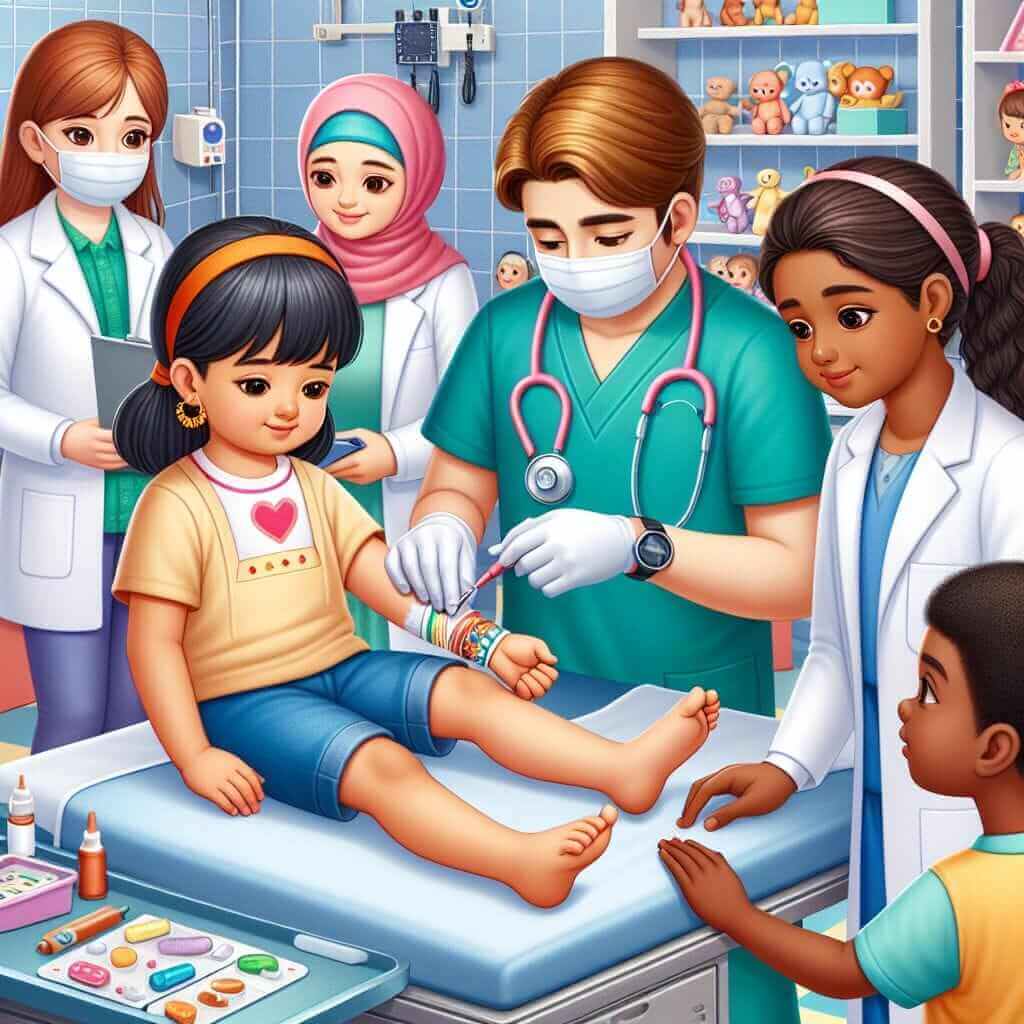Understanding the balance between parental and state responsibility in children’s medical care is crucial, especially for those preparing for the IELTS Writing Task 2. This topic has been featured in various IELTS essay prompts and is likely to appear again due to its relevance and complexity.
Introduction
The notion of who should take responsibility for children’s medical care – parents or the state – is a recurrent theme in IELTS Writing Task 2. This complex topic invites test-takers to weigh ethical, practical, and social considerations and is often framed in argumentative or discuss analytical essays. Given its importance and frequency, it is essential to grasp this topic thoroughly.
Example Task 2 Prompt
From research, we have discovered past IELTS prompts that tackle this issue. One of the most commonly seen prompts is:
Some people believe that the responsibility for providing medical care to children should lie solely with parents, while others argue that the government should also be accountable. Discuss both views and give your opinion.
Detailed Analysis of the Prompt
Understanding the Question
This essay prompt presents a classic argumentative structure:
- Discussing both views: You should present balanced arguments on both sides.
- Giving your opinion: Clearly state your position and justify it.
Key Points to Cover
- Parental Responsibility: Arguments for this view may include parental knowledge of a child’s needs, moral obligations, and familial bonds.
- State Responsibility: This perspective might emphasize universal healthcare, equal access to medical services, societal stability, and public health considerations.

Sample Essay
Discuss both views and give your opinion.
Introduction
The issue of whether parents alone should be responsible for their children’s medical care or whether the state should share this responsibility is a subject of heated debate. While some assert that parents are best suited to cater to their children’s health needs, others believe that the government must play a pivotal role in ensuring children’s well-being. This essay will discuss both viewpoints before presenting my own perspective.
Body Paragraph 1: Parental Responsibility
Those in favor of parental responsibility argue that parents have an intrinsic understanding of their children’s unique needs. Parents often have a deep emotional bond with their children and are motivated by love and concern, ensuring diligent care and attention. Furthermore, parents are in a position to observe their children daily and can monitor subtle changes in health that a state system might overlook. Besides, moral responsibility dictates that parents should look after their offspring and make informed decisions about their well-being.
Body Paragraph 2: State Responsibility
Conversely, proponents of state responsibility highlight the necessity of universal access to healthcare to prevent inequalities. Government involvement would ensure that even children from underprivileged backgrounds receive adequate medical attention, which is critical in preventing widespread health issues and promoting societal stability. Moreover, the state has more resources and comprehensive systems in place to manage public health crises, ensuring coordinated and effective responses.
Conclusion
In conclusion, while parents undoubtedly play a crucial role in their children’s medical care due to their intimate understanding and moral obligations, the government’s involvement is equally essential to guarantee quality healthcare and social equity for all children. Hence, a collaborative approach where both parents and the state share responsibility offers a balanced and comprehensive solution.
Word count: 267 words
Tips for Writing on Parental vs. State Responsibility in Children’s Medical Care
Vocabulary and Grammar Tips
- Use conjunctions effectively to join contrasting and complementary ideas (e.g., “while,” “however,” “moreover”).
- Vary your sentence structures, mixing simple, compound, and complex sentences to maintain reader engagement.
Key Vocabulary
- Intrinsic (adj) /ɪnˈtrɪnsɪk/: belonging naturally; essential
- Diligent (adj) /ˈdɪlɪdʒənt/: having or showing care and conscientiousness in one’s work or duties
- Underprivileged (adj) /ˌʌndərˈprɪvəlɪdʒd/: not enjoying the same standard of living or rights as the majority of people in a society
- Coordinated (adj) /kəʊˈɔːrdɪneɪtɪd/: organized in a way that makes the best use of time, efforts, etc.
- Inequality (n) /ˌɪnɪˈkwɒlɪti/: difference in size, degree, circumstances, etc., unfair treatment
Pointers for High Band Scores
- Structure: Make sure your essay has a clear introduction, body, and conclusion. Use paragraphs effectively to structure your ideas logically.
- Content: Address both sides of the argument comprehensively and provide a well-reasoned opinion.
- Language: Use a range of vocabulary and grammatical structures accurately.
Conclusion
In discussing the balance of responsibility for children’s medical care, it is crucial to present well-rounded arguments and a logical conclusion. This essay topic not only tests your language skills but also your ability to engage with ethical and social issues critically. Potential future prompts might ask you to explore related themes, such as the role of parents versus the state in education or welfare services. Therefore, understanding this topic holistically will better equip you for similar topics.